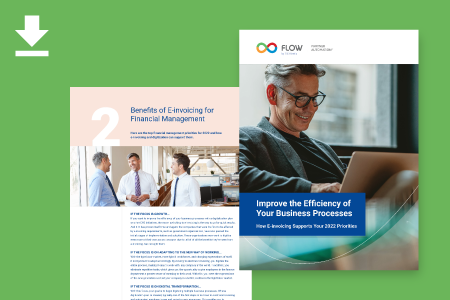November 27th, 2020
The wholesale food distribution industry includes roughly 35,000 establishments with a combined annual revenue of $970 billion in the U.S. alone. And since populations are continuing to rise around the world and market entry barriers are low, these numbers are only going up.
In the present, it’s fairly easy for a business to change wholesale suppliers. This significantly heightens competition in the wholesale food industry, making it a high priority to keep up with consumer demand while minimizing calculation errors that could lead to customer loss.
To maximize business-to-business (B2B) operations, the most successful food wholesalers have fully automated their supply chains. They’ve done this by employing a wholesale EDI solution to not only ensure inventory visibility and traceability but EDI compliancy as well.
What Does EDI Compliant Mean?
The majority of retailers, regardless of industry, now require all of their suppliers to send invoices electronically via EDI. In recent years, this has become a standard prerequisite for engaging in any sort of business relationship, and wholesalers are no exception. In fact, many wholesalers are now adopting this trend themselves by requiring their own suppliers and partners to forgo traditional document exchange methods. But what exactly is “EDI compliant”?
To be EDI compliant means that your business is fully capable of sending electronic documents (not to be confused with the PDFs you may be sending by email) in a designated format. In such a short explanation, it doesn’t seem too complicated. In reality, ensuring that your business is EDI compliant for all of your customers can become a nightmare for your IT department if you’re attempting to manage everything in-house. That’s where things can get a bit tricky, because every EDI transaction involves a lengthy list of things that have to be taken into consideration. You can read more on that here.
When it comes to EDI in the food industry, most wholesalers opt to outsource their B2B EDI operations to a trustworthy service provider. This is especially common when the EDI initiative is of the wholesaler’s own accord. Because of the fierce competition in the wholesale food industry, EDI compliancy can make or break a business—it’s what ultimately determines how quickly you can move through both order-to-cash and procure-to-pay cycles, meeting shipping deadlines and keeping your finances in check along the way.
Benefits of B2B EDI in the Wholesale Food Industry
Due to product shelf life and the general perishability of many items, B2B EDI in the food industry earned its popularity by enabling a much quicker delivery and transaction cycle. And because order quantities are significantly larger, the stakes are even higher for wholesalers when it comes to timeliness. But faster turnaround isn’t the only thing wholesale EDI can provide.
No matter if your wholesale EDI implementation is in response to customer obligation or it’s a self-led initiative, here’s how it can benefit your business:
- Lean inventory purchasing—You’ll gain full order transparency and be able to better predict how much you should order and when
- Order confirmations—With greater control over your inventory thanks to your B2B EDI implementation, you’ll be (automatically) sending a lot more of these
- Improved logistics—Print SSCC labels directly from the DESADV (okay, that’s only something you can do from our FLOW platform, but it’s really, really cool)
- Optimized shipping—Send the ultra-important Advance Shipment Notice (ASN) to let your customers know their order is on its way (and much, much more)
- Enhanced invoice accuracy—Your wholesale EDI solution will enable cross-checking on all documents related to your invoice for virtually zero inaccuracies
- EDI compliancy—You’ve already read about this one above, but it still deserves a place on the list
Get Ahead & Stay Ahead
Having a B2B EDI solution that enables full transparency for both order-to-cash and procure-pay processes puts businesses in the wholesale food industry at a serious advantage. The ability to draw data-driven conclusions from your wholesale EDI solution is always useful, but it’s especially helpful in times of economic downturn—don’t let this bring your operations to a standstill.
Getting ahead of your wholesale food industry competition means staying on top of increasing demand for certain products, predicting trends, cutting costs where you can (e.g. transportation), and effectively communicating with your trading partners and customers. With solutions catered to your specific food industry needs, TIE Kinetix can provide you with a top-notch wholesale EDI solution complete with real-time insights so you can get ahead, and stay ahead.




